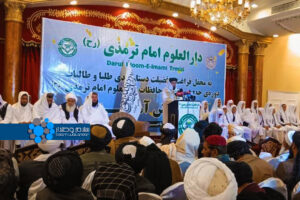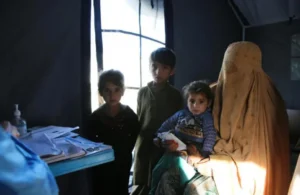MONITORING (SW) – Since the Taliban seized power in Afghanistan last month, they have made some commitments to uphold human rights. However, their subsequent actions have “sadly contradicted” those promises, the UN rights chief told a side event of the General Assembly on Tuesday.
Michelle Bachelet informed a high-level event on safeguarding 20 years of international engagement in Afghanistan, that women have been “progressively excluded from the public sphere”, prohibited from appearing without a male guardian and face increasing restrictions on their right to work.
“The Ministry that once promoted women’s rights has been disbanded, and its premises taken over by a Ministry for the propagation of Virtue and the prevention of Vice – an all-male office that will apply guidelines on appropriate dress and behaviour” the human rights chief said.
Moreover, Taliban representatives have dismantled many other former government offices for women’s affairs, gaining access to sensitive files, threatening staff, and accusing women’s civil society groups of spreading “anti-Islamic” ideas.
“There is real and palpable fear among Afghan women of a return to the Taliban’s brutal and systemic repression of women and girls during the 1990s”, said the High Commissioner.
Severe consequences
Meanwhile, a growing humanitarian crisis across the country is putting one million children in danger of extreme hunger, with families headed by women – most of whom can no longer work – among those at greatest risk.
Over the last 20 years, Afghan women have worked towards ensuring greater respect for and protection of their rights to education, work, political participation and freedom – of movement and expression.
“These rights are part of the evolution of Afghan society and are integral to the development and economic growth of Afghanistan”, underscored Ms. Bachelet.
As women and girls comprise half of Afghanistan’s population, she reminded that the country would benefit by utilizing their talents and capabilities.
The High Commissioner said that “first and foremost”, women and girls must have full and equal access to essential services, including healthcare and education; be able to work in every sector of the economy; be free to move without restrictions; and live free of all gender-related violence.
“In short, Afghan women and girls’ human rights must be upheld and defended”.
When engaging with the Taliban, Ms. Bachelet stressed that the international community, including the UN and all its Member States, must commit to “strong advocacy that demands compliance with these basic requirements for any fair and just society”.
“Respect for the rights of the women and girls of Afghanistan now will be a harbinger of the country’s future”, she said. “They face extraordinary challenges – and we will remain at their side”.
ENDS






